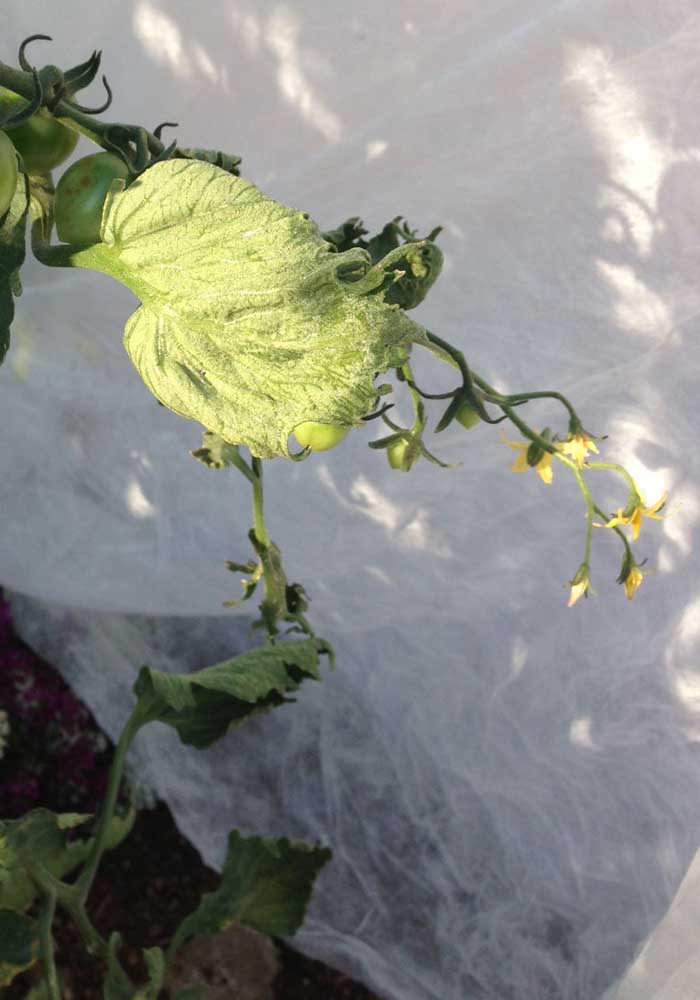Why do my tomato plants look sick?
Published 6:42 pm Wednesday, July 12, 2017

- Tomato leaf showing distortion due to herbicide damage. (Amy Jo Detweiler, Oregon State University)
Q: What is wrong with my tomato plants? The leaves look funny?
A: The distorted growth is due to herbicide damage. Herbicides are a type of pesticide that control weeds. Some of the most common herbicides used to control broadleaf weeds in lawns and landscape beds contain the active ingredient 2,4-D, which doesn’t react well in heat.
Trending
As we roll into summer, it is important to make sure that temperatures are not 85 degrees or higher on the day you are spraying or a few days following. Products containing 2,4-D can volatilize (think vaporize) in hot conditions and be carried in the air to injure non-target plants. Unfortunately, we see a lot of herbicide damage on plant samples in Central Oregon. Plants that are more sensitive to drift respond by showing distorted growth, misshapen or cupped leaves. Pine trees are also very sensitive to 2,4-D damage and respond with twisted and curled needles.
Young new growth on plants are especially vulnerable to drift injury. Not only is it important to spray within the right temperature range, but also to make sure that there is no wind on the day when you are spraying. Once the damage is done, there is nothing that can be done to reverse it. Hopefully, the damage is not lethal and new growth will continue to come on.
Other types of herbicide damage on plants are also common from products containing dichlobenil, glyphosate, and dicamba, when misapplied. The take-home message is, if you are going to use an herbicide, be sure and read the label in its entirety, as all of this cautionary information is there and may save you some grief from plant damage down the road. As for that tomato plant that came into our plant clinic, I suggested to the client to wait it out. With any luck he will see some new growth, new flowers and a few juicy red tomatoes.
— Amy Jo Detweiler is an associate professor of horticulture at Oregon State University Extension Service.








